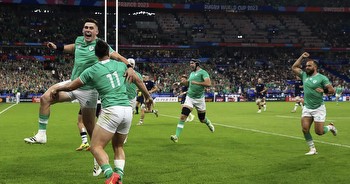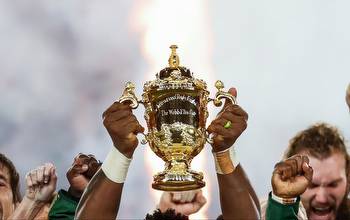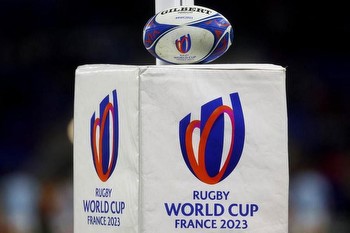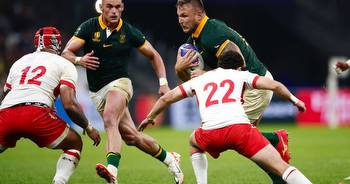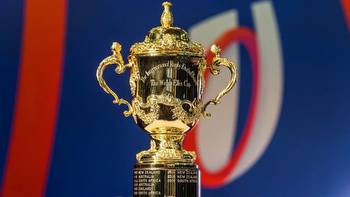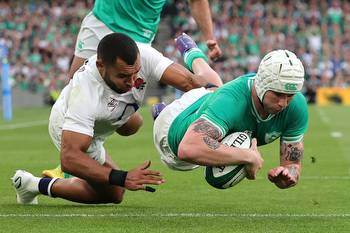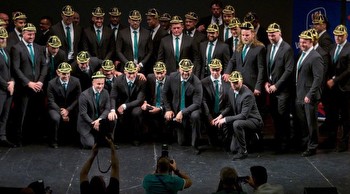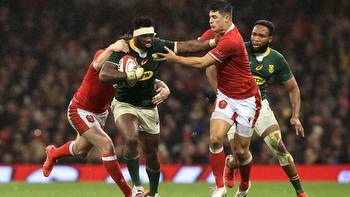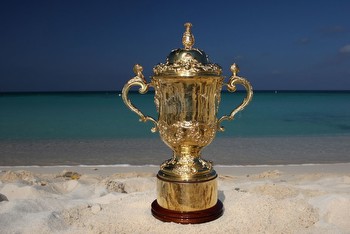Rugby World Cup and the World Rugby Men’s Rankings powered by Capgemini

With the international rugby landscape having changed so much since the rankings were introduced in 2003, we take a look at some of the trends leading into previous Rugby World Cup tournaments.
For Home Nations trio Scotland, England and Wales and the likes of Argentina, Fiji and Australia in the southern hemisphere, history will be made if any of those teams go on to win Rugby World Cup 2023.
No team outside of the top four of the World Rugby Men’s Rankings powered by Capgemini has lifted the Webb Ellis Cup since they were introduced following the 2003 tournament.
And from 2011 onwards, all of the medallists have come from the top four teams with the finishing positions at RWC 2015 (New Zealand, Australia, South Africa) exactly mirroring the order of the rankings.
South Africa have been the best-performing ‘underdog’ with both of their wins in the rankings era (2007 and 2019) coming when they went into the tournament in fourth place.
Meanwhile, in 2011 and 2015, New Zealand backed up their number one status by becoming world champions, a feat that Ireland will be setting out to achieve when this year’s tournament kicks off shortly.
It will be Ireland’s second stab at it after they went into RWC 2019 on top of the rankings but still exited at the quarter-final stage, a barrier that they have yet to overcome.
This time around though, the 2023 Six Nations Grand Slam winners have been number one for 14 months, the longest continuous run by a northern hemisphere team, as opposed to just a fortnight in 2019 when the lead at the top of the rankings changed hands three times between New Zealand, Wales and Ireland in the weeks leading up to the sport’s showpiece event.
While Ireland are ranked at number one for the second consecutive tournament, New Zealand have never gone into a Rugby World Cup as low as their present position of fourth. The All Blacks’ rating of 89.06 is also the lowest it’s ever been.
England (eighth), Wales (10th) and Romania (19th) join New Zealand in entering a Rugby World Cup having never been lower in the rankings, although England and Wales’ rating is marginally better than it was in 2007, when they were seventh and eighth pre-tournament.
Springboks go into RWC 2023 on a high
By contrast, South Africa’s second-place position is their best at this stage of the four-year cycle, and for the first time on the eve of the big kick-off, they have a rating of more than 90 points (91.08)
Among the other nations to find themselves in their loftiest pre-tournament position are Scotland (fifth), Fiji (seventh), Georgia (11th), Portugal (16th) and Uruguay (17th).
Tournament debutants Chile are ranked 22nd, on 60.49 points, which is seven places and almost six points better off than they were on the outside looking in ahead of RWC 2019.
In terms of the rating of the teams in first and 10th in the rankings, the gap is now just 13.56 points compared to 18.49 points back in 2007, highlighting how competitive world rugby has become in more recent years.
Sixteen years ago, New Zealand went into RWC 2007 with the best-ever rating of any team immediately before a tournament (93.37 points) while Scotland were on 74.88 points in 10th, a gap of 18.49 points.
This time around Ireland, in first place, are on 91.82 points, while Wales in 10th have 78.26 points. In truth, there is probably not even that much between them on any given day, especially in tournament conditions.
And with double the points on offer at Rugby World Cups and this tournament predicted to be the most open yet, teams in the top 10 of the rankings could be squeezed even closer together over the next couple of months, which can only be good for the game.

